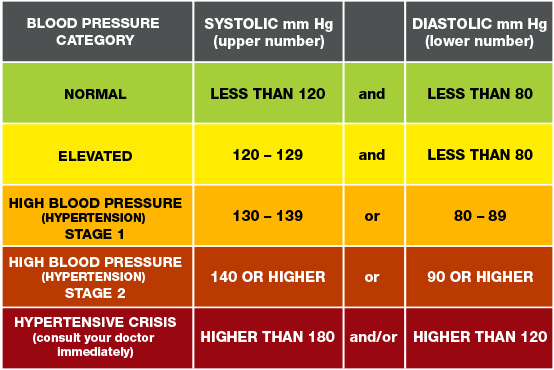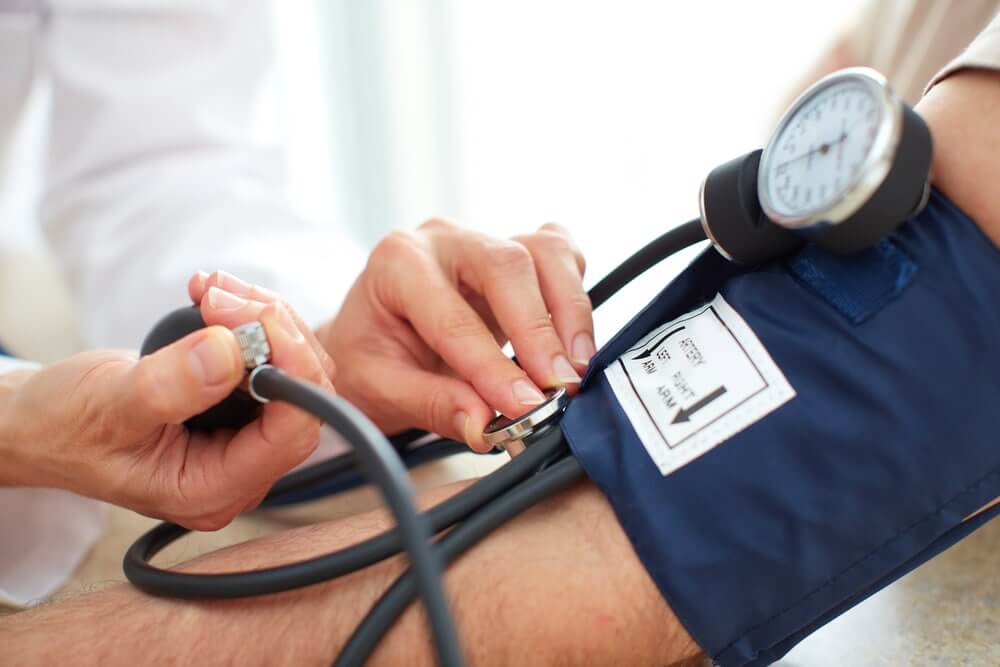Blood pressure is the force of your blood pushing against the walls of your blood vessels. It is a known fact that high blood pressure can damage your blood vessels, put you at risk of kidney disease and increase your risk of a heart attack, or stroke. If you’ve never had a problem with your blood pressure before, finding it higher than the average limit of 120/80 (mm Hg) can be shocking. But don’t get too worried just yet. There could be some common harmless reasons when you experience blood pressure spikes and here are 8 of them.
1.White Coat Hypertension
If you get nervous as soon as you walk into your doctor’s office, your heart might start to race. Your body acts in a fight or flight situation. The heart rate goes up and the body gets ready to move. Experts call the resulting rise in blood pressure “white coat hypertension,” and it can cause your reading to go up by as much as 15 points, according to a review published in Hypertension. Taking deep breaths in through your nose and out through your mouth can help you relax. This will slow down your heart rate and bring your blood pressure back to normal. Waiting until the end of your appointment to have your BP measured might help, too. “By then, you should have answers to all of your questions, and you should feel less worried,” he says.
2. You Rushed to Your Appointment.
We’ve all been there: the only parking spot is a block away, and you only have five minutes to get to your doctor’s office on the third floor of the building. That’s bad for your blood pressure, and not just because being late makes you feel stressed. When you walk or run quickly, your heart rate goes up because it must pump more blood to your muscles. When more blood flows through your circulatory system, the walls of your blood vessels are put under more pressure. Doctors say it can make your blood pressure go up for a short time.
If your doctor checks your blood pressure before your heart rate has had a chance to return to normal, which can take up to 30 minutes, based on how fast your heart was beating, the reading will probably be higher than you expect. So, ask your doctor if he can check your blood pressure at the end of your visit instead of the beginning. By then, your body’s physiology will have returned to a normal resting state.” And your blood pressure number will be better.
3. Eating Certain Foods
Some foods like salty foods can cause blood pressure spikes and a temporary increase in blood pressure. This is because salt can cause the body to retain water, which can increase blood volume and raise blood pressure. Salty food, processed and packaged food, red meat, alcohol and sweetened beverages can all increase blood pressure
4. Medications
Certain medications, such as decongestants, Nonsteroidal anti-inflammatory drugs (NSAIDs), stimulants, birth control pills, antidepressants, and steroids can increase blood pressure. Always consult your doctor and inform him if you are on any medication.
5. You Have to Pee—Badly.
We’ve all been there: the only parking spot is a block away, and you only have five minutes to get to your doctor’s office on the third floor of the building. That’s bad for your blood pressure, and not just because being late makes you feel stressed. When your bladder is full, your body sends a signal to release stress hormones like adrenaline, which turn on your “fight or flight” reaction. This narrows your blood vessels which can raise your blood pressure by up to 15 points. If you must pee when you get to the doctor, don’t hold it in. First go, and then let the doctor take your blood pressure. In three or four minutes, your blood pressure should go back to normal.
6. You Drank Coffee or An Energy Drink.
Most energy drinks contain caffeine. Consuming caffeine or alcohol can cause a temporary increase in blood pressure. Caffeine can stimulate the nervous system, causing the heart to beat faster and blood vessels to narrow, while alcohol can relax blood vessels, causing blood pressure to rise. Regular coffee drinkers could have a spike of up to 5 mm Hg. For those who don’t normally drink caffeine, your BP could jump by as much as 15 mm Hg. Most experts agree that patients should steer clear of caffeine for at least 30 minutes before taking their BP. While one may be ok, don’t overdo the energy drinks.
7. You Sat with Your Legs Crossed.
When you sit with your legs crossed, your veins get squashed. This can cause blood to pool in your legs. Your heart starts pumping more blood to make up for this and make sure that enough blood gets to other important parts of your body, like your chest. And this can raise your blood pressure by as much as 8 mm Hg. To get the most accurate reading of your blood pressure, you should sit comfortably and straight up. When taking your blood pressure, your feet should be flat on the floor and your hands should rest on the chair’s armrest. The position is the norm, so your doctor should tell you if you aren’t sitting right.
8. Freezing Exam Rooms.
When it’s cold, your blood vessels close to the top of your skin narrow so that more blood can go to your core. This helps keep your critical organs warm, but it can also raise your blood pressure by up to 20 mm Hg. When your blood vessels are smaller, the blood has to work harder to get through them. Since you can’t turn up the heat in the doctor’s office or wear a coat while he takes your blood pressure, the best thing you can do is make sure you’re not too cold before you go. If the room seems unusually cold, you could leave your coat on until right before the reading. But if you’re always cold no matter what, tell your doctor. She might suggest you try taking your blood pressure at home.
It is important to note that temporary blood pressure spikes are not necessarily a cause for concern, as they are normal and can occur in healthy individuals. However, if you experience frequent or persistent spikes in blood pressure, it is important to speak with your healthcare provider to determine the underlying cause and develop an appropriate treatment plan.
Should You Worry About One High Blood Pressure Reading?

Don’t worry too much if you get one strange reading. The American Heart Association says that your doctor should take at least two blood pressure readings, at least one minute apart, and then take the average of those two values. But if your blood pressure seems higher than normal and one of the above was a factor, tell your doctor. He can decide if you should wait longer to take the second look. To be officially diagnosed with high blood pressure, you need to have high readings on more than one day.”
If the number stays over 140/90, which is the cutoff for high blood pressure, you and your doctor can talk about lifestyle changes that can help bring it down, like exercising, eating right, cutting back on salt and alcohol, and quitting smoking, as well as any possible medications, like acetaminophen, antidepressants, NSAIDs, or corticosteroids.

